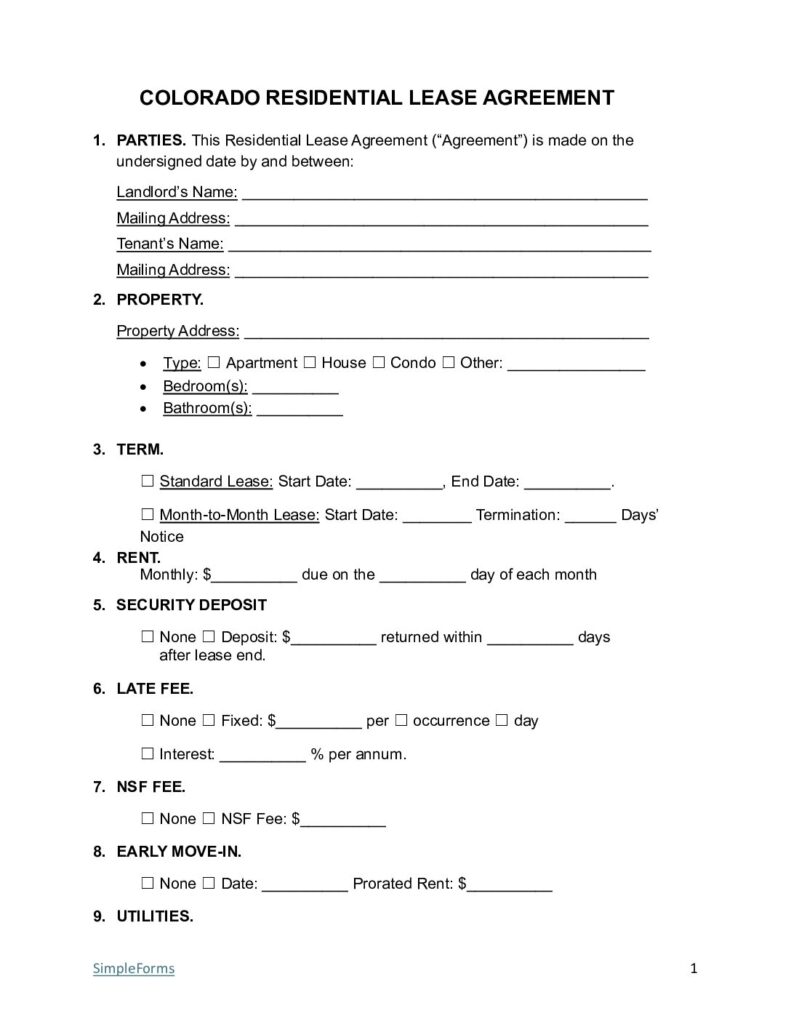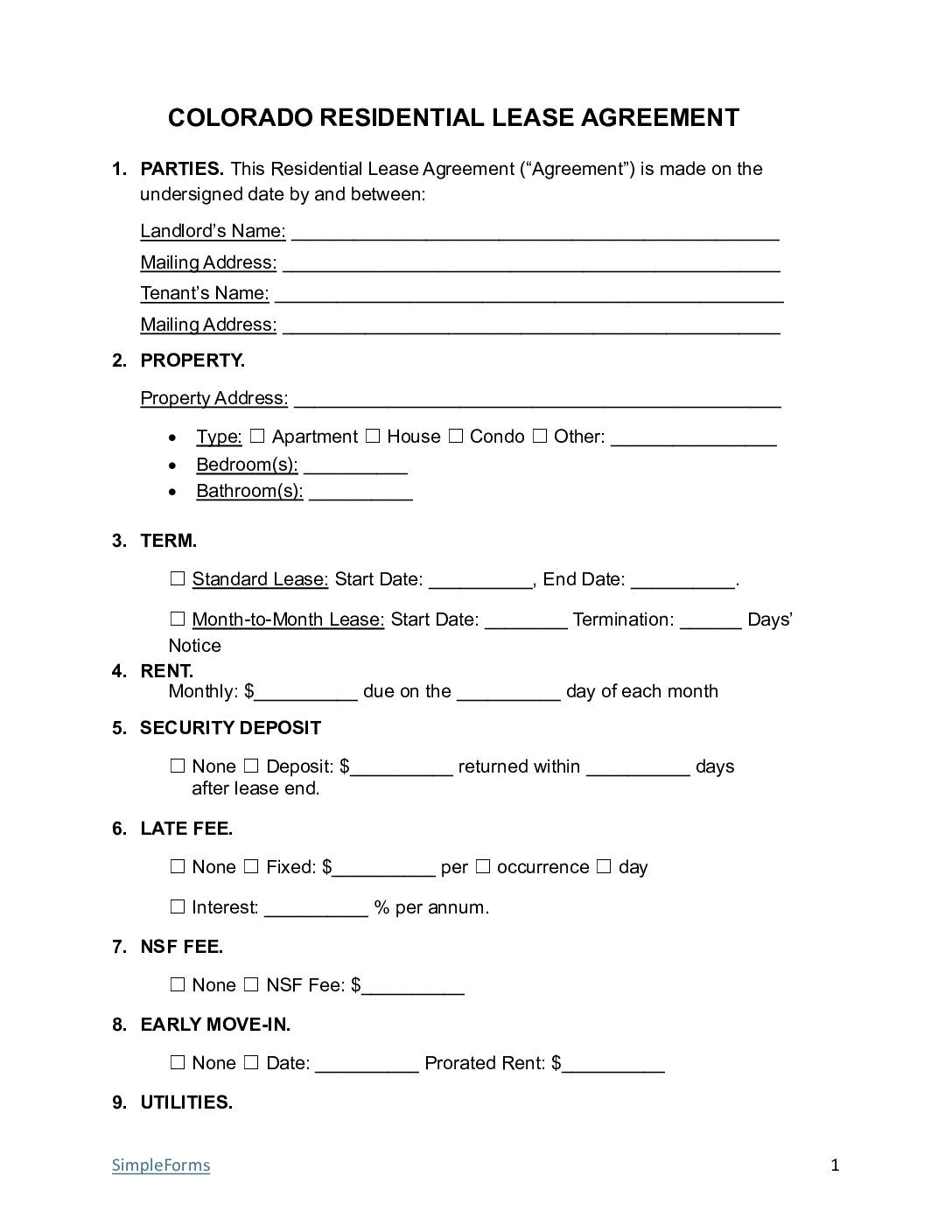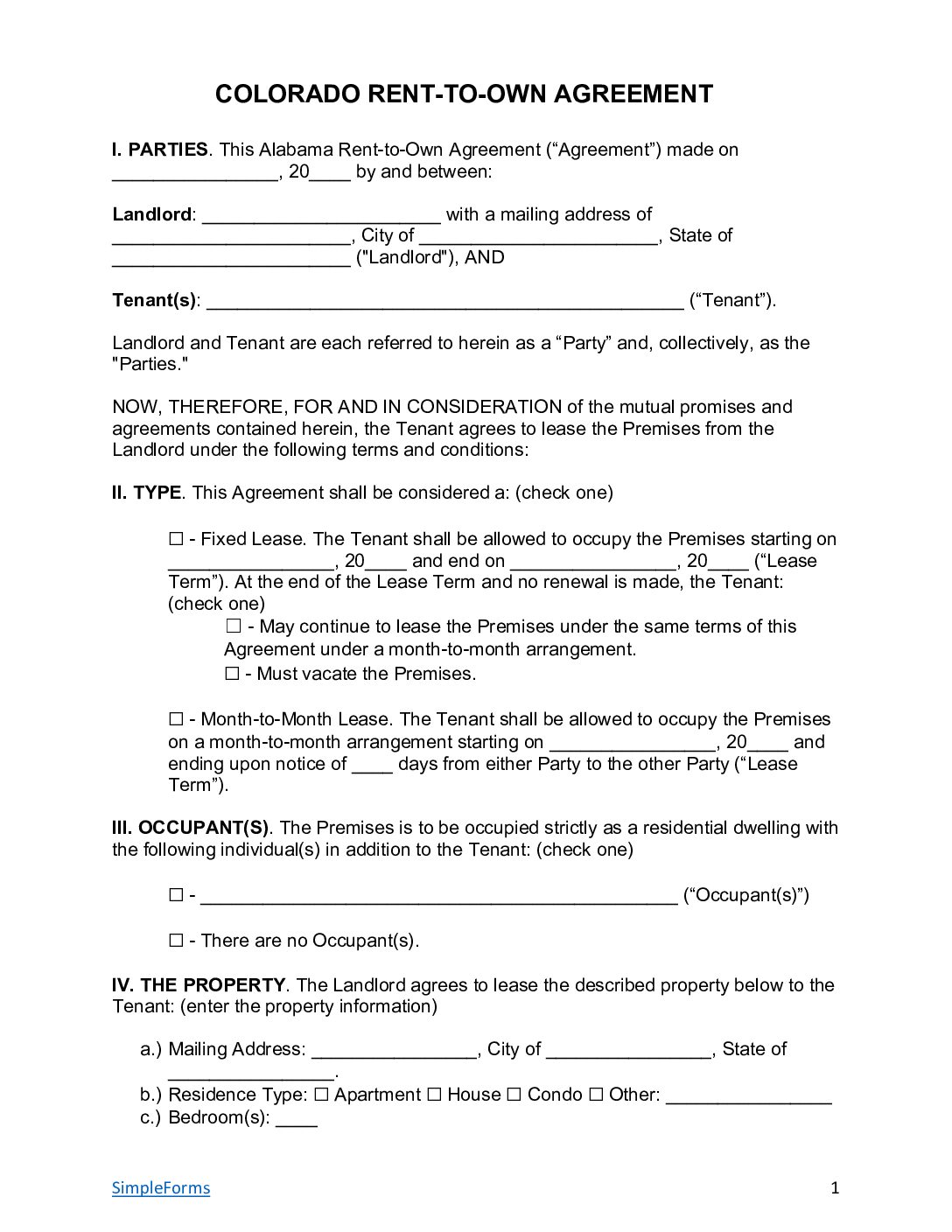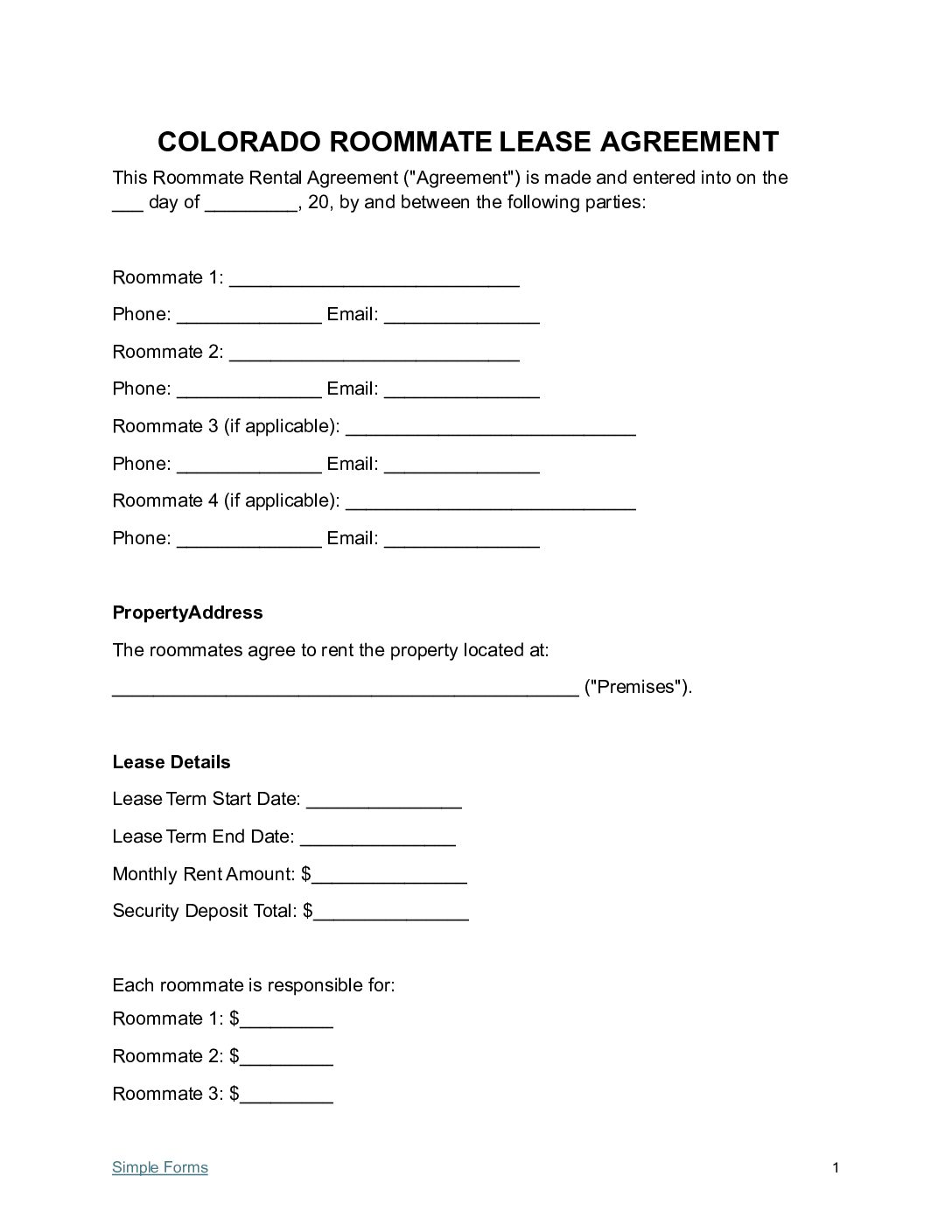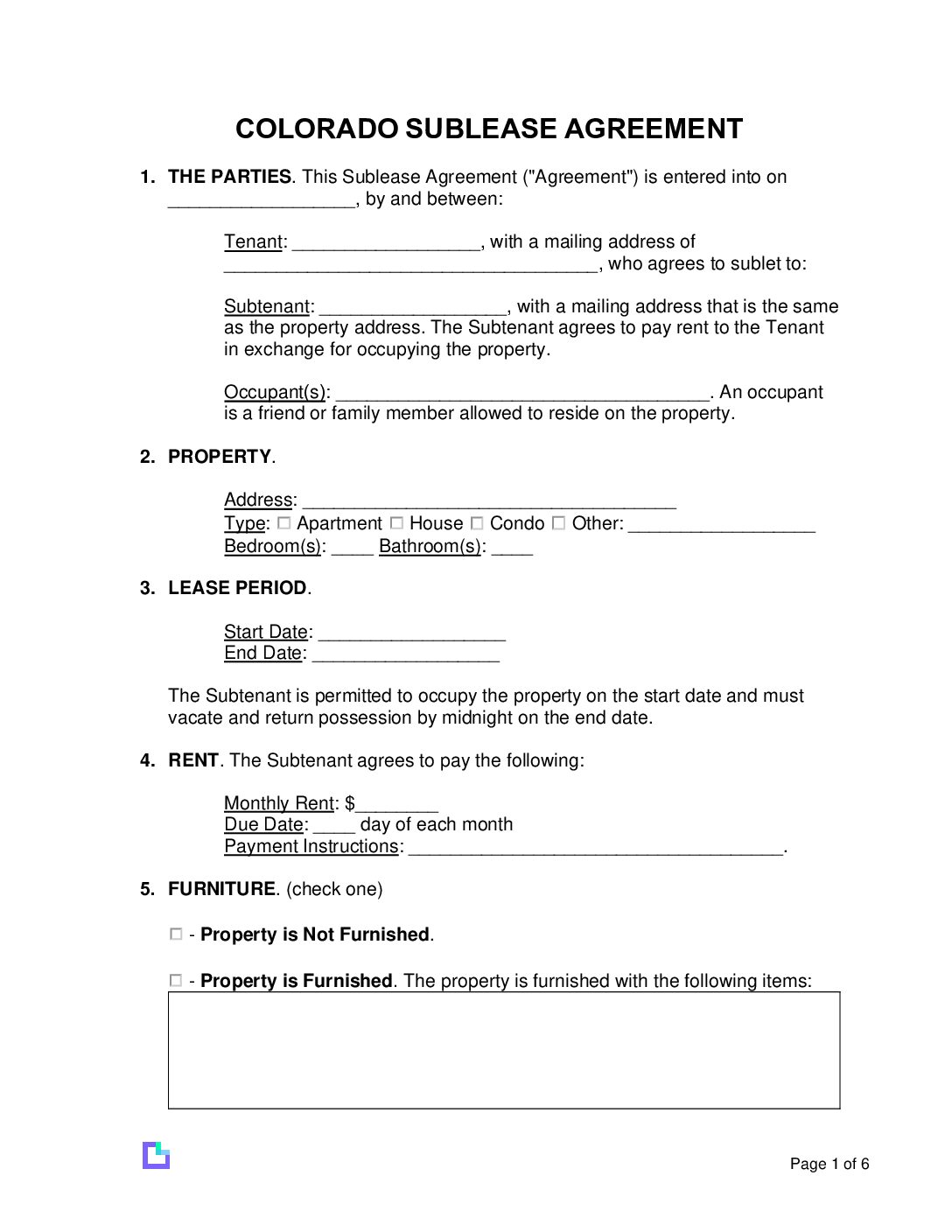By Type (6)
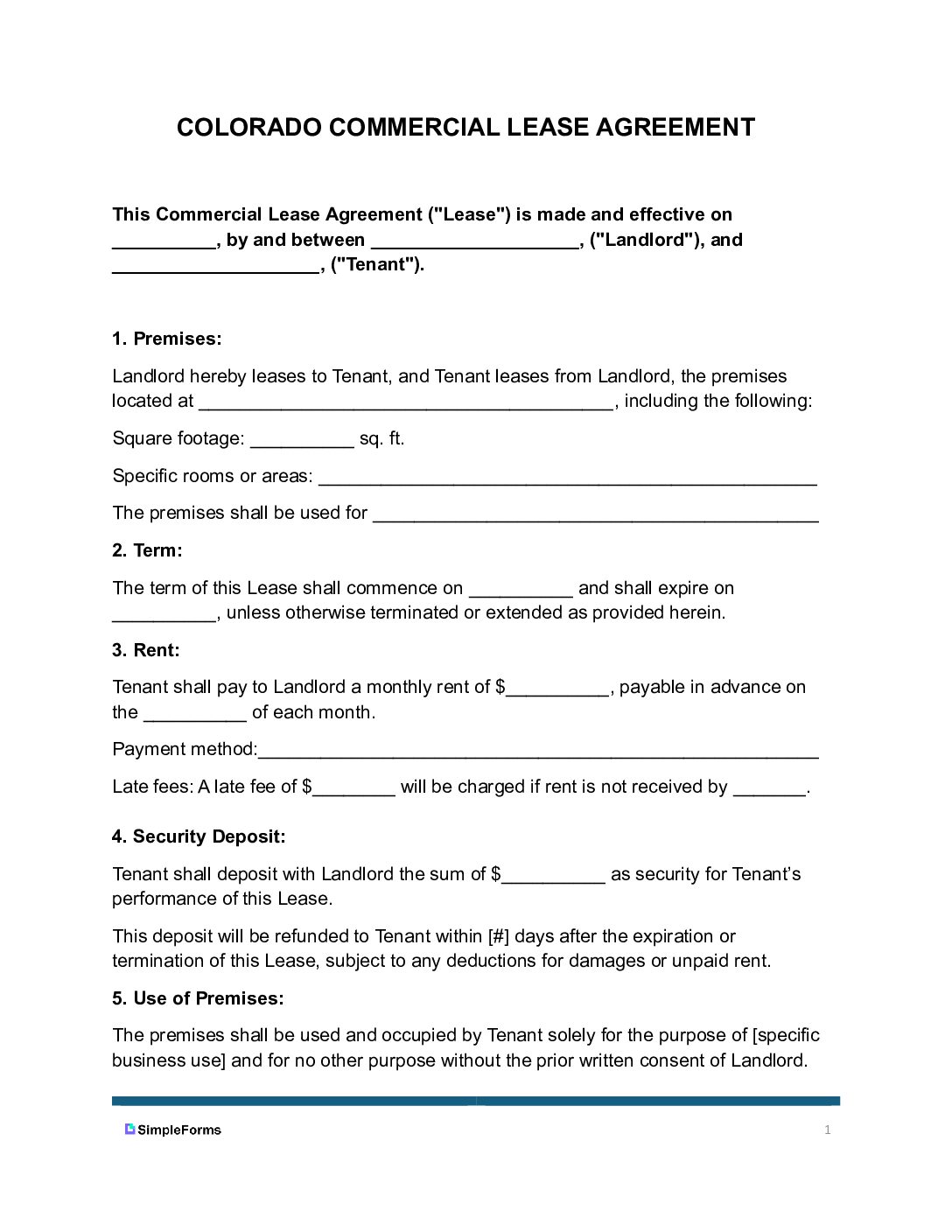
Commercial Lease
Download:
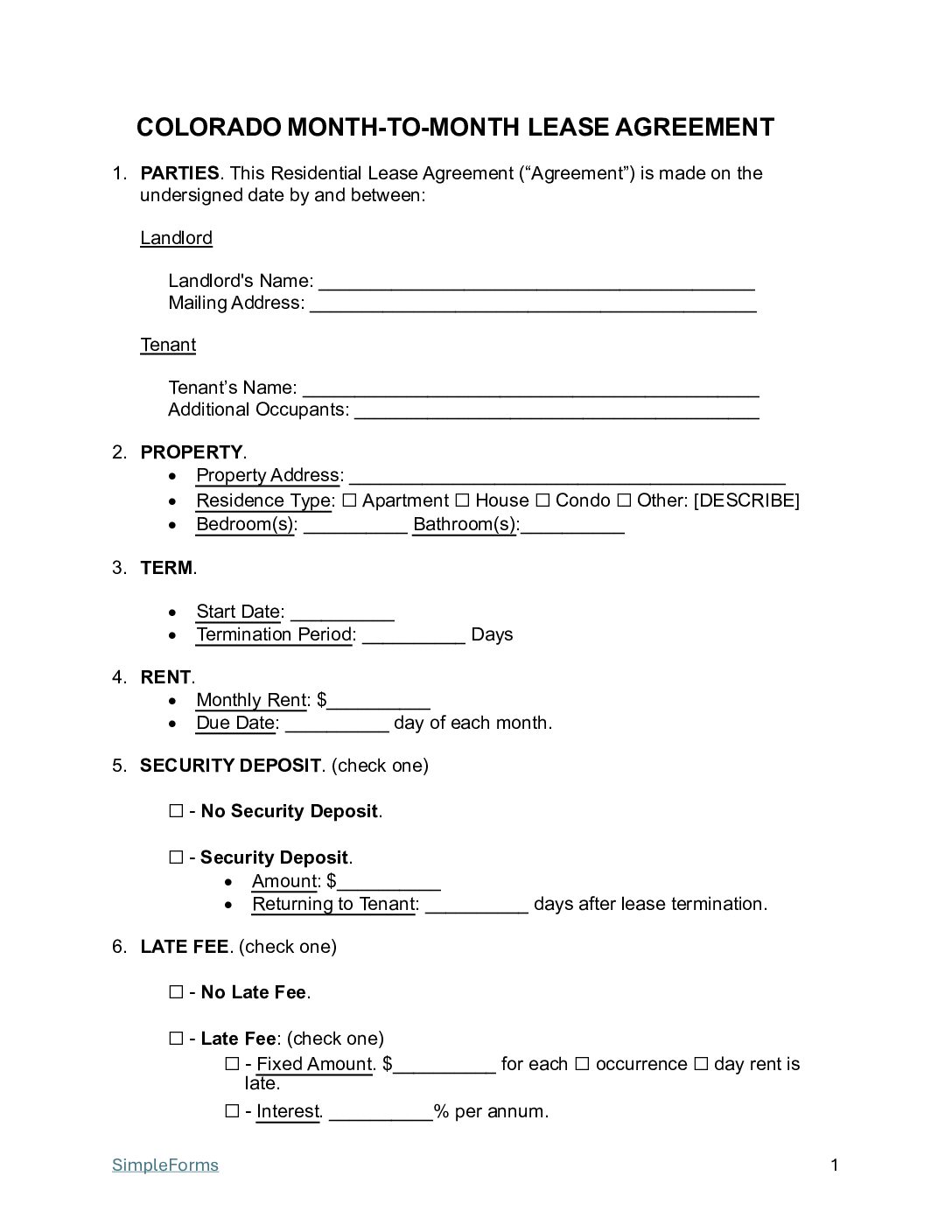 Month-to-Month
Month-to-Month
Download:

Rent-to-Own-Option
Download:
 Room (Roommate)
Room (Roommate)
Download:
 Sublease Agreement
Sublease Agreement
Download:
What the Colorado Residential Lease Agreement form covers?
This Colorado residential lease agreement includes landlord-tenant laws which include limited security deposit amounts and rent increases only after 12 months. They must keep rental units habitable and can evict tenants for specific legal reasons. A 24-hour notice for landlord entry is recommended. Retaliation is prohibited, and tenants can terminate leases for domestic violence with proper documentation.
The following provides a detailed overview of the laws in this agreement:
- Security Deposit Requirements
- Rent Increases and Rent Control
- Habitability Requirements
- Landlord-Tenant Eviction Laws
- Landlord Entry Rights
- Retaliation Protections for Tenants
- Lease Termination and Renewal Notices
- Late Rent Payment Fees
- Domestic Violence Protections
- Required Disclosure Forms Landlords Must Give to Tenants
Security Deposit Requirements
-
- Deposit Limit – The maximum amount of security deposit that a landlord can charge is up to two (2) month’s rent.
- Deposit Return –The landlord must return the security deposit within one (1) month. However, if the lease agreement outlines a deadline date for the return of the security deposit, the landlord must adhere to such a deadline, which cannot exceed sixty (60) days.[1]
Rent Increases and Rent Control
There’s no rent control in Colorado, however landlords cannot raise tenants rent until they have been renting for 12 months or more.[2]
Habitability Requirements
Landlord-Tenant Eviction Laws
Landlords can only evict tenants when there is ‘legal cause’, which include the following:
-
- non-payment of rent
- violates the lease agreement
- commits a crime or is violent to another resident [4]
Landlord Entry Rights
-
- Landlords are not obligated to give tenants prior notice before entering their premises. However, it is highly recommended that landlords provide a notice period of 24 to 48 hours in advance of non-emergency entry.
- Landlords do not need to give a 24-hour notice to tenants if the access is for Bed Bug Fumigation.
Retaliation Protections for Tenants
Landlords cannot retaliate by:
-
- Increasing rent or decrease a service
- Terminating lease
- Not renewing the lease
- File legal action for possession
- Threat, harass, or discriminates against tenant
- Charging any type of penalty fees [5]
Lease Termination and Renewal Notices
-
- 91-day notice to renew a 1-year lease
- 28-day notice for 6 months to a year lease
- 3-day notice for weekly leases [6]
Late Rent Payment Fees
-
- Maximum Penalty – Landlords may charge a late fee of $50 or 5% of past due rent, whichever is greater, as the maximum penalty.[7]
- Grace Period – In the state of Colorado, lessees are granted a seven (7) day grace period for late rental payments. Property owners are prohibited from imposing any fees or penalties on rental payments until the eighth (8th) day.[8]
- Notice to Quit – If the tenant fails to make rent payment by the end of the grace period, the landlord can issue a ten-day notice to vacate.
- Written Disclosure – Colorado landlords or their agents can charge late fees if disclosed on the lease.
- NSF Fee – $20 per bounced check. [9]
Domestic Violence Protections
Tenants can terminate lease with proper reporting on domestic violence which includes crimes against a person, property, animal, or any municipal ordinance violation. [10]
Required Disclosure Forms
-
- Lead-Based Paint Disclosure & EPA Pamphlet – If the place was built before 1978, the lead-based paint disclosure needs to be signed by the Tenant.[11]
- Lease Copy – The tenant should get a copy of the lease within seven (7) days from signing it.[12]
- Landlord’s Contact Info – The lease needs to include the landlord’s name and address, which is listed in Section 21 of the agreement.[13]
- Radon Disclosure & Brochure – The landlord has to let the tenant know if there are any radon risks and give them the “Radon in Real Estate & Rental Transactions” brochure. By signing the lease, the tenant acknowledges they’ve received this info.[14]
- Bed Bug Disclosure – The landlord can’t rent the place if there are bed bugs. If asked, they must say if there have been any bed bugs in the last eight months.[15]
- Exemption Status – If the landlord owns five or fewer single-family homes, they can give a 5-day notice to make sure the lease terms are being followed.[16]
Recommended Services
Colorado Division of Real Estate Website – dre.colorado.gov
Sample Colorado Residential Lease Agreement Template
Sources
- C.R.S. § 38-12-102.5
- colorado.gov
- § 38-12-503
- § 13-40-104(1)(d)
- Colo. Rev. Stat. § 38-12-509
- Colo. Rev. Stat. § 13-40-107
- § 38-12-105(a)
- § 38-12-105(1)(c)
- § 38-12-105(1)
- Colo. Rev. Stat. § 18-6-800.3
- 42 U.S. Code § 4852d
- C.R.S. § 38-12-801(1)
- C.R.S. § 38-12-801(2)
- C.R.S. § 38-12-803
- Dept. of Public Health & Environment
- C.R.S. § 38-12-803(2)(a)(III)
- C.R.S. § 38-12-1005
- C.R.S. § 13-40-104(5)(b)
Colorado Lease Agreement Checklist
✅ Before Signing Checklist
Landlord Preparation:
Tenant Preparation:
✅ After Signing Checklist
Immediate Actions (First 24 Hours):
First Week Actions:
